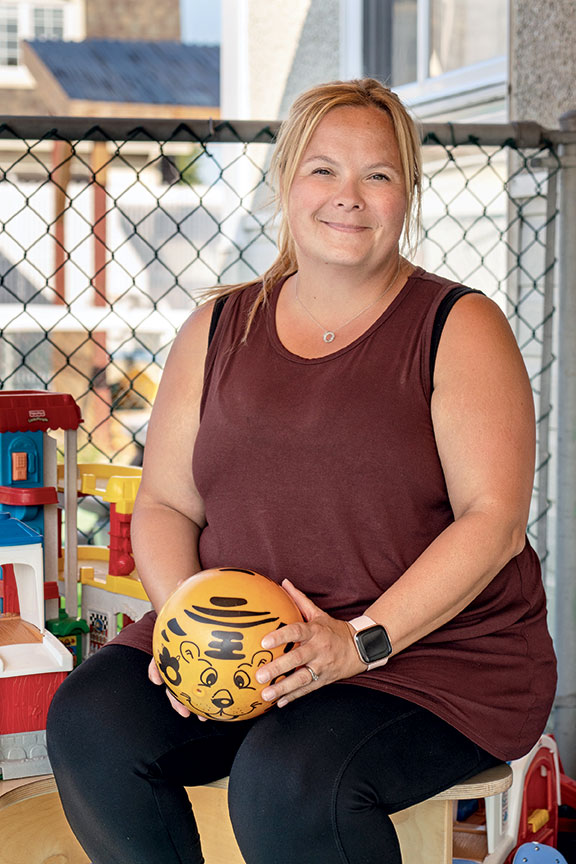Vicky Goyette, President of the Syndicat des intervenantes en petite enfance des Laurentides, has noticed that her role as union leader is not always perceived as something positive. “Some tell me I must love to gripe and complain when nothing could be further from the truth! Saying you’re involved with your union is still frowned on.”

She believes that this may discourage certain people from getting involved. She freely admits that until quite recently, she was not all that interested in her union’s actions either. She only started paying closer attention last year, when employees interested in joining the CSQ got the ball rolling. The general assembly presentation convinced her to run for the executive committee. “I was bitten by the union bug then and there, so I raised my hand. It was all quite spur-of-the-moment!” adds with a laugh the early childhood educator, a 19-year veteran at CPE Les petits trésors de Boisbriand.
Things went a bit differently for Josée Robichaud. When she told her loved ones about her plan to become a union representative, the news was well received. “Given all we achieved in the most recent bargaining rounds, I only got positive feedback,” says the regulated and subsidized home childcare educator. Media coverage of the tremendous solidarity among educators, of their demands and what they achieved clearly demonstrated the importance of unions in the early childhood sector.
Doing our part to shift perceptions
For Vicky Goyette, getting involved was an opportunity to help move her profession forward. Throughout her career, she has seen her union focus much too often on the individual representation of its members. “We were told that the union would represent us to the bitter end, regardless of the reasons,” she notes. But what the members were hoping for was greater recognition of their profession and of what an educator’s professional life entails.
Both circumstances and mindset have changed a great deal since her union became affiliated with the CSQ, she adds. Things are more positive, and discussions now focus on professional recognition rather than individual rights. “And that is what grabs members’ attention!”, she argues.
Solidarity equals strength
Josée Robichaud admits that just a few years ago, she saw herself as more pro-management. But over time, she discovered that unions have much to offer.

She got involved in her union rather inadvertently. At the time, the private home childcare service that she had been operating since 2008 had just been recognized by a Coordinating Office. As she was struggling with certain forms, her union provided her with support services. And that got her thinking about getting involved herself. “I figured that if I was having problems, other people were certainly having problems too!” she explains.
In next to no time, Josée Robichaud was taking part in many of her local union’s activities where she was welcomed with open arms. “It was really super easy,” says the early childhood worker. A few weeks later, she was invited to the Next Generation Camp organized by the Fédération des intervenantes en petite enfance du Québec (FIPEQ-CSQ) and was blown away by the strength of the group. Seeing what each of the union’s decisions involved and the very real concern for a democratic process only strengthened her resolve.
During her local union’s next meetings, Josée Robichaud will be stepping up and getting more involved. Support measures for children with special needs are of great interest to her and she thinks that her union could be a wonderful vehicle toward better quality services for these kids.
Getting the word out
Vicky Goyette and Josée Robichaud both agree that there is still much to do communication-wise to get the younger generation involved in their unions. Everyone can find a reason to get involved whether to work toward personalized services or better recognition for the profession.
Both educators say that getting involved in their union helped them discover a democratic and supportive movement which they now actively promote. “Getting new people, especially women with children, interested and involved is challenging given current staff shortages, says Vicky Goyette. But what’s heartening is that once our members get involved, they stay involved in the union movement for many years.”
